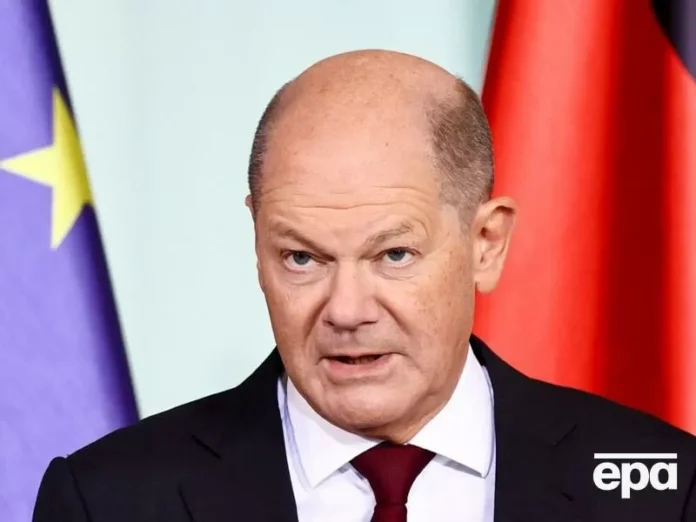The European Union is not doing enough to help Ukraine in its fight against the full-scale aggression of Russia. This statement was made by German Chancellor Olaf Scholz on February 1st after the EU summit in Brussels, as reported by Sky News.
The ongoing conflict between Ukraine and Russia has been a major concern for the international community since 2014, when Russia annexed Crimea and supported separatist rebels in eastern Ukraine. Despite numerous efforts by the EU to mediate and find a peaceful solution, the situation on the ground remains tense and the Ukrainian people continue to suffer.
At the recent EU summit, leaders discussed the ongoing crisis in Ukraine and the need for a united response to Russia’s aggression. However, Chancellor Scholz’s statement highlights the fact that the EU’s actions have not been enough to effectively support Ukraine in this critical time.
One of the main issues is the lack of a unified approach among EU member states. While some countries, such as Germany and France, have been actively involved in diplomatic efforts to resolve the conflict, others have been more hesitant to take a strong stance against Russia. This lack of unity weakens the EU’s position and sends a mixed message to both Ukraine and Russia.
Furthermore, the EU’s economic sanctions against Russia have not been as effective as hoped. While they have certainly had an impact on the Russian economy, they have not been enough to deter Russia’s aggressive actions towards Ukraine. This is partly due to the fact that some EU member states, particularly those heavily reliant on Russian energy, have been reluctant to fully implement the sanctions.
In addition, the EU’s financial aid to Ukraine has also been insufficient. While the EU has provided billions of euros in loans and grants to support Ukraine’s economy and reforms, it has not been enough to address the country’s urgent needs. The ongoing conflict has caused significant damage to Ukraine’s infrastructure and economy, and the country is in desperate need of more financial assistance to rebuild and stabilize.
Chancellor Scholz’s statement serves as a wake-up call for the EU to step up its efforts in supporting Ukraine. It is clear that the current approach is not enough to effectively address the crisis and help Ukraine defend its sovereignty and territorial integrity.
The EU must take a stronger and more unified stance against Russia’s aggression towards Ukraine. This includes implementing tougher economic sanctions and providing more financial aid to support Ukraine’s recovery and reforms. It is also crucial for the EU to continue its diplomatic efforts to find a peaceful solution to the conflict.
Moreover, the EU must also work towards reducing its dependence on Russian energy. This will not only weaken Russia’s leverage over the EU, but also send a strong message of support to Ukraine.
It is time for the EU to show its full commitment to standing by Ukraine in its fight against Russian aggression. The Ukrainian people have shown great resilience and determination in the face of this crisis, and it is the EU’s responsibility to provide them with the necessary support and assistance.
In conclusion, Chancellor Scholz’s statement highlights the need for the EU to do more to help Ukraine in its fight against Russian aggression. The EU must take a stronger and more unified stance, both economically and diplomatically, to effectively support Ukraine and help bring an end to this ongoing crisis. It is time for the EU to show its full support and solidarity with Ukraine, and work towards a peaceful resolution of the conflict.

